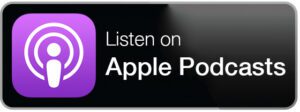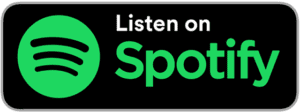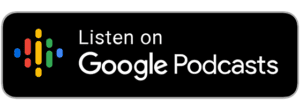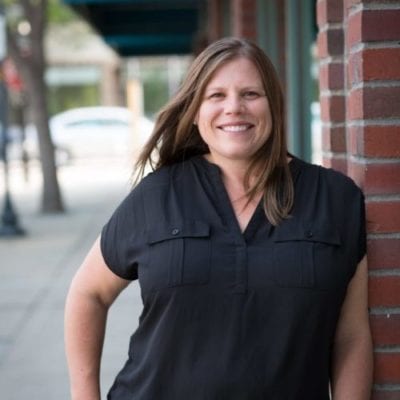Welcome to Lean Leadership for Ops Managers, the podcast for leaders in Ops Management who want to spark improvement, foster engagement, and boost problem solving – AND still get their day job done. Here’s your host, Leadership Trainer, Lean Enthusiast, and Spy Thriller Junkie, Jamie V. Parker.
You know how sometimes you start something with certain expectations and then you find that your biggest lessons and your biggest wins actually come from something different than expected? That’s what this podcast has been for me. My biggest gains and successes have come from places I wasn’t even thinking about, and things that actually relate directly to your role and practice of Lean leadership. So my hope in sharing these is that hearing about my wins and gains from podcasting will actually help you as you’re reflecting, planning and dreaming for the year. And I’m going to make sure that I tie everything I talk about today, back to your work, too.
All right. So now that I’ve released more than 20 episodes, let’s dig in to some of the things that I’ve been surprised by, some of the lessons, some of the wins, and some of the kind of proud moments too. The first big lesson and win is the power of routines, the power of discipline, the power of consistency. It’s confession time.
I’ve always known that a big part of business building, particularly in today’s thought leadership world is to consistently add value. So you want to make sure that you’re creating value and that you’re getting in front of your audience. So maybe it’s emailing people in your community or blogging or posting on social media platforms. The exact method or medium isn’t really the critical part. There are people who make it work using all the different pieces and so it’s not right or wrong to use this one over that one, but the consistency does matter.
So that confession – I have never before been consistent with any of those. I would email my community weekly for a couple of months and then ghost for two or three times that amount of time. I would write and publish a series of blogs, and then silent for a very long time. Social media, so not my jam. But this podcast, it has published every single Wednesday at 2 am since I launched it. I’ve never missed an episode. I even added a bonus episode back in October.
You see, the podcast is a non-negotiable for me. It will happen every week. And I decided that from the very beginning. If I’m going to do this, I’m doing it. And the really cool thing is that with each new podcast episode, it also means that I email my community every single week, and I post on LinkedIn about the episode every single week.
So by committing to the outcome of a weekly episode and making it work in my schedule, I not only have developed the discipline of the episode, but the discipline of the weekly email and the LinkedIn post has also come with it. Discipline breeds discipline. By getting more consistent, by following through and executing in this one area, it’s made it easier to follow through and execute consistently in the other areas. Routines, discipline, consistency, they’re key for you too. Think about leader standard work.
Now, you may not be able to jump from current chaos to fully scheduled weeks of leader standard work in one step. Ron Pereira and I actually talked about that in episode 12, and how you might choose a different path for that if you want to go back and listen to it. But when you commit to discipline of one thing, more discipline follows.
When you figure out how to make one part of your weekly or daily activity routine, and then you follow through consistently on that one part, it actually creates the space for the other parts to follow. So here’s a question for you. What’s that one thing that you should give more discipline and consistency to in your work? What do you need to make a non-negotiable routine?
All right, part two of this whole discipline, routines and consistency things – simplify. Simplify, simplify, simplify. You see, my plan when I launched my podcast was actually to put every episode on YouTube as well. And I know you can do a static image with just the audio, but that’s not my favorite. I really wanted to have the video of me recording the podcast on it because some people prefer to watch versus to listen, some people prefer YouTube over podcast applications, and YouTube is an amazing search engine. I can actually have these episodes be found better if they’re on YouTube, and people are searching. So that was the plan. I don’t know if you’ve noticed, but none of these episodes are on YouTube and I’m going to tell you why.
So what I would do is I would set up Audacity and set up my microphone on the desk with the arm at the microphone and have my webcam, and then I would, in addition to recording the audio in Audacity to get better audio quality, I would record on Zoom, in order to get this video.
And I tried this for several episodes, I’m like, “We won’t publish it at this time” – because Meg, who produces my podcast episodes, and I, both our schedules were full – but we’ll go ahead and record them so we can go back to it and then publish them. So I did that for the first three or four of those. I was doing it and let me tell you what happened. It complicated things, and it actually made it harder to do.
First of all, I was like, “Oh, wait, I know I’m supposed to record this podcast episode, but I can’t because then I got to do my hair, I got to put makeup on because I’m going to be on camera.” Or I would be recording, and I would start to worry about what does it look like on camera, and it would actually take my focus and attention away from you, the listener. Whereas when I was just recording it audio, I can just think about you being on the other end of this listening and really focus on creating value for you.
But the video component was adding this other piece. And it was taking longer for me to set up. I’d be like, “Oh, nope, that’s not the right camera angle,” or “I got to set this up.” It just made it more complicated which meant I was starting to put it off. And I know I’m supposed to be doing this at this time but I’m going to put that off until tomorrow because of whatever. And I actually had to decide like, well, what’s the value of the YouTube, and is that something I want to do right now? And thinking about particularly, what’s the value of the podcast? Why did I start the podcast?
And so I actually made a decision that I was trying to make this podcast too complex, by also making it a YouTube channel. And that in reality, I need to focus on doing this one thing well, in this one medium, and I’m going to nail this one medium. I might start a YouTube channel down the road, I might add video recording of this down the road – those are all options to explore further – but I was over complicating it. I was adding in extra layers that didn’t have to be there. They didn’t need to be there. When I simplified, then I could follow through on the discipline and the routines and the consistency. So here’s my question for you. What is too hard in your work right now? What could you simplify in order to get more of the right things done?
All right, next up, imperfect action. We talk about this in Lean all the time, taking imperfect action. “Don’t let best get in the way of good. Learn through doing. Fail forward.” We talk about it a lot in my women’s entrepreneurship circles too. And when it comes to iterating my way through problem solving with clients, I’m game, but when it comes to me personally, my core, innate personality starts to shine through a little bit. You see, I’m a planner. I’m a researcher, I’m a high C. I might have some perfectionist hangups. Not only did I never earn anything lower than an A in high school, I also graduated as valedictorian of my college class with all As.
My natural tendencies are to strive for achievement and perfection. So I actually have to really work to keep that in check. Well guess what it takes to publish a podcast episode every week? That’s right. Imperfect action. Being okay with good enough, putting out Grade B work because it’s valuable for someone now, instead of spending three weeks, four weeks, five weeks perfecting it to an A. The big thing about this is how the repetition and practice of imperfect action helps me take imperfect action in other areas. It frees up time and bandwidth for me to better serve my client without being burnt out from working all day and night.
And here’s the biggest lesson of imperfect action that I want you to hear. Ready for it? I learn more through imperfect action than I do from planning. Think about a podcast episode. Sure, I could write and rewrite and edit and then ask someone else to look over it and then do more research and then update it again. And then hope that I’ve kind of worked out the kinks so that when I record it, it’s all good. Or I can release the episode, get feedback from the actual episode, talk about it some more on a different episode. And after I’ve gotten a few episodes on the similar topics, I’ve learned more about how I want to frame that topic and what resonates and what doesn’t. I learn more from acting than I do from endless planning.
As an example, think about this in terms of daily meetings or shift huddles. Let’s say you’re getting ready to start daily meetings, you could spend week after week after week planning out the agenda and making version after version of the board or you can get a rough framework and then start doing, start taking that imperfect action. The act of doing is what will inform you as to what your agenda really should be, and what visual management would actually help. So we actually talk about this in episode 15, with Meredith Fisher and Stephanie Hill, where we talked about improving daily meetings. But I really want you to think about what do you learn from planning and researching versus what do you learn from doing, from taking imperfect action? Here’s the question for you. Where are you stuck in planning and researching and trying to figure it all out before you take action? Where do you need to learn by doing instead?
This last topic probably stems from the whole perfectionist achievement thing I just talked about and some self-esteem issues. You see, I know this is hard to believe, I’m kind of socially awkward. I’m a big introvert and I don’t really know how to have small talk and I’m pretty private and hold things close to the chest. And so growing up, I didn’t have a lot of friends. I didn’t really know how to make friends. And I played softball in high school, but I wasn’t a tremendous athlete. And I wasn’t really the prettiest girl in school, I just didn’t feel like I fit in.
But I was smart, I could get good grades. And while I was uncomfortable in every other area, I could throw myself into schoolwork and find self-worth in the achievement. Well, fast forward to my career, same stuff. I struggled on the self-worth side. So I threw myself into work promotion after promotion after promotion. Achievement, it’s what I told myself was the proof that I was worthy.
Now, I’ve done a lot of internal work with years of working with a life coach to find ways to find worth in who I am without needing that external achievement outcome. But I still have some of that nagging, it’s still a work in progress. And I have some of that nagging fear of rejection, fear of judgment. It wasn’t really there the last five years of my corporate career because I was damn good at that role and I was full of confidence. But in this new entrepreneurial space, I still struggle with it. Particularly when it comes to putting myself out there in highly public arenas. It doesn’t really bother me when I email my community or speak at a conference or facilitate a workshop or work with clients because those are narrower audiences that have kind of been vetted, but social media and a public podcast, that brings up more of that fear for me.
Now, yes, I get that if you’re listening to the podcast, then you’ve self-selected in, but I’m out there telling folks on LinkedIn that they should listen too. And it’s so weird because I get these notes from people thanking me for certain episodes, and these are people I’ve never met or interacted with. I had no idea how they would have found me, so I know it’s a much broader audience.
But here’s one of those things when combining the discipline of a weekly episode with the imperfect action of good enough results is that it builds my muscle of taking risks, putting myself out there, and using my voice. And that’s this kind of last big lesson here. And last big point of pride that I’m proud of from this podcast is that I’m building the muscle of using my voice and I’m getting better at that.
Now, I don’t know if you have the same hangups. If you do, I encourage you to borrow some courage and confidence from this podcast process to find your voice and to take risks to use your voice. If you don’t have this hangup, you may still find a lesson in this. If we want to get better at something or more skilled or more confident or more capable, then we need to build that muscle. If you want to get better at stopping yourself from telling the answer and instead asking good coaching questions to help team members become better problem solvers, then you have to build your asking good coaching question muscle. You got to build your stopping yourself muscle. If you want to get better at giving reinforcing feedback so that team members feel valued and execute more of the helpful improvement behaviors you want, then you have to build your reinforcing feedback muscle.
The first 10 episodes I released I was so nervous. I mean, I would physically feel uncomfortable every Wednesday. Now, I don’t feel that way. Now I feel good about sharing and contributing to the conversation about Lean leadership. The confidence didn’t come by building the skill of podcasting. I still have tons to learn and improve to become an excellent podcaster.
The confidence came from building the muscle of using my voice, building the muscle of taking risks, from building the muscle of putting myself out there. Now I know that I can focus on actively improving my podcasting skills because I’ve worked past the drama of feeling sick to my stomach by taking a risk, by putting myself out there. So two questions for you. Are you using your voice to contribute and add value? And what muscle do you need to build?
All right, let’s recap. This podcast, my first podcast launched on August 26. I initially started it as a way to connect and create and teach and get visibility since all of my conference appearances were abruptly canceled in 2020. But there are some amazing lessons and big wins that I’ve found through the process of producing this podcast for you.
All right, first, discipline, consistency, routines. Second, simplify. Third, take imperfect action. And fourth, build the muscle you need. For me, I needed to build the muscle of using my voice.
Now, what are your next steps? I gave you a few questions to reflect on through this episode. You don’t have to answer all of them. I just want you to think about what resonated the most with you, and just pick one or two to reflect on. And then do what? Take action, even imperfect action. Extra credit, share the episode with a colleague and have them take this next step too and discuss it together. I’m going to give you the questions again in case you need them, and of course, you can find them at the show notes processplusresults.com/podcast, and this is episode 23.
All right, here are the questions. What is that one thing that you should give more discipline and consistency to in your work? What do you need to make a non-negotiable? What is too hard in your work right now? What could you simplify in order to get more of the right things done? Where are you stuck in planning and researching and trying to figure it all out before you take action? Where do you need to learn by doing? Are you using your voice to contribute and add value? Tell me more about that. And finally, what muscle do you need to build?
Here’s the cool thing, with Katie Anderson, you learned more about setting intention to guide your leadership, then today, I’m giving you food for thought and questions to help you reflect. Do that reflection within the context of the intention setting work you did before. Next week, we’re going to build on this idea of assessing where you are today and aligning what you’re doing with your intention and goals. Patrick Adams is joining us to talk about his new book. And we’ll explore one key assessment question you and your leadership team can discuss together to better understand your current state and how well your operation is aligned with your purpose, intention and goals. We’re going to explore this to help understand do you have this culture that you’re expecting or is it maybe a continuous appearance trap? So stay tuned in for that one. Happy New Year. So excited to be here with you in 2021. Until next time.
Are you looking for access to free Lean leadership training and resources? I’ve pulled together some of my best replays and put them all on one page for you. That’s right, for free. To get access just head over to processplusresults.com/free, F-R-E-E, free. So head over to processplusresults.com/free.












